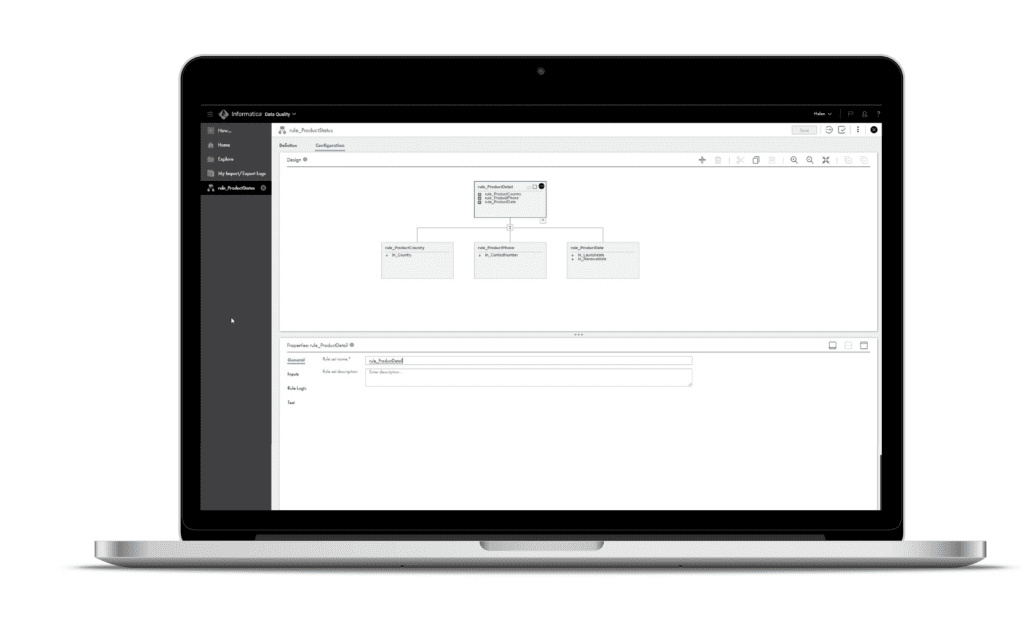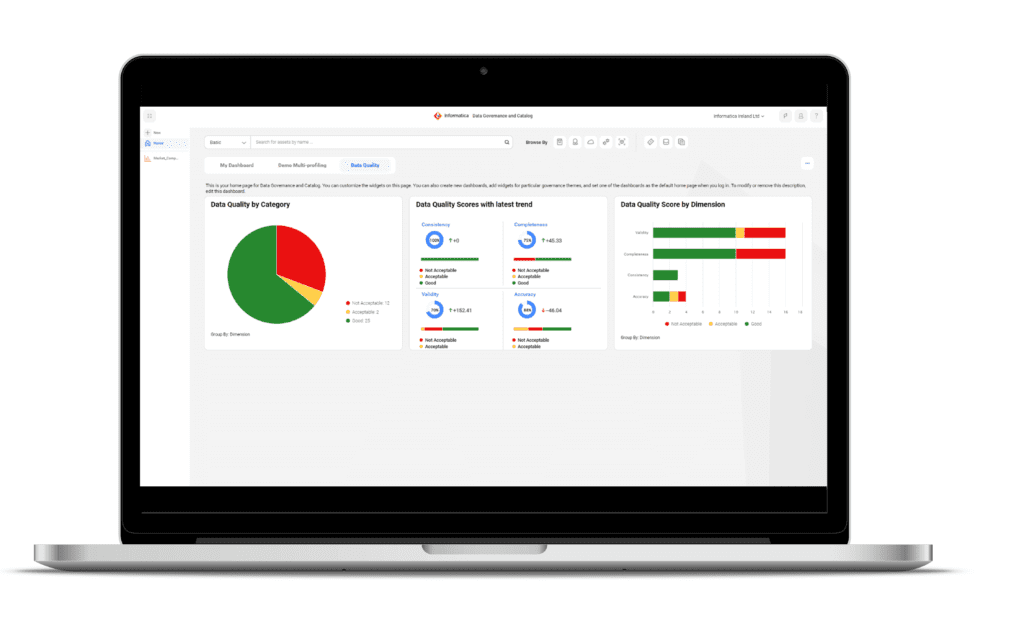
Seth Rao
CEO at FirstEigen
5 Downsides of Informatica Data Quality and How DataBuck Eliminates Them
Do you know the major downsides of Informatica Data Quality—and how to work around them? Often known as Informatica DQ, this tool is part of the larger Informatica data integration platform. Numerous enterprises rely on it to optimize data quality across both on-premises and cloud systems.
However, Informatica DQ is not perfect. Users have reported several downsides that can affect their use of the tool and impact their organization’s data quality. That’s why a growing number of Informatica users are turning to FirstEigen’s DataBuck. It complements Informatica DQ by providing faster, easier-to-use, dependable data quality monitoring.
Quick Takeaways
- Informatica Data Quality, part of the larger Informatica suite, has some significant drawbacks.
- Informatica DQ makes it difficult to create data validation rules and update rules for dynamic content.
- The platform lacks real-time processing and data alert features.
- Informatica DQ’s reporting capabilities are limited.
- DataBuck eliminates Informatica drawbacks and provides faster, more accurate data quality monitoring.
Difficult to Create Data Validation Rules
Informatica DQ users report five key drawbacks, with the chief among these drawbacks being the complexity in creating new data validation rules.
How Data Validation Works?
Data validation involves checking the accuracy, structure, and integrity of data within your system. Without it, you won’t know whether the data is complete or accurate, which casts doubt on its usability. It’s crucial, then, that all the data in your system be thoroughly validated.
In this context, data validation serves as a key metric for data quality. High-quality data is necessary to ensure that your data is both accurate and reliable.
There are many ways to validate data, such as
- Data type: Ensuring the field contains the appropriate data type
- Code value: Verifying a code against a list of valid values
- Range constraints: Ensuring data falls within an acceptable range)
- Format: Checking that data adheres to a specified format
- Consistency: Confirming that data has been entered in a consistent manner
- Uniqueness: Ensuring that a given piece of data is not duplicated)
How Informatica Data Quality Creates Data Validation Rules?
Informatica DQ enables users to create their own data validation rules. This is necessary as every organization deals with different types of data and has its own standards for data quality. While generic data validation rules are useful, they might not catch all poor-quality data or may be so strict as to filter out otherwise-valid data. However, the process in Informatica is cumbersome, discouraging some users from creating the rules they need.

How DataBuck Makes It Easy to Create Data Validation Rules?
Unlike Informatica DQ’s manual process, FirstEigen’s DataBuck automates rule creation. Leveraging machine learning and AI, DataBuck automatically creates custom rules for your organization’s specific data needs. These automatically generated custom rules supplement DataBuck’s baseline set of rules that help validate any dataset.
Difficulty Updating Data Quality Rules for Dynamic Data
Data can be either static or dynamic. Static data remains the same once collected, while dynamic data can change throughout the integration process to maintain its integrity or add new information.
How Informatica Data Quality Manages Dynamic Data?
Unfortunately, Informatica DQ data validation rules are static in nature. That’s fine when you’re dealing with static datasets but proves problematic for dynamic data. Since Infomatica’s rules do not easily adapt to new or changed data, users often have to write new rules when data changes in their system.
How DataBuck Deals with Dynamic Data?
DataBuck’s machine learning and AI capabilities enable it to automatically generate new data quality rules, making it highly adaptable to dynamic data. As your data changes, DataBuck identifies these changes and autonomously creates new rules in response.
No Real-Time Processing
Some systems ingest data in batches. Others ingest data, such as IoT or social media data, in a continuous real-time stream. If you utilize streaming data ingestion, Informatica DQ may prove problematic.
How Informatica Data Quality Handles Streaming Data?
Informatica DQ is designed for batch ingestion, not streaming data. The tool is disconnected from the Extract, Transform, Load (ETL) data flow, lacking the real-time processing necessary to validate streaming data.
How DataBuck Excels in Streaming Data Management?
DataBuck’s automated data quality monitoring easily handles both batch and streaming data. It can validate thousands of datasets in seconds, making it capable of monitoring streaming data in real time. It’s also easily scalable to meet your organization’s evolving data needs.
Less Than Robust Data Quality Reporting
To ensure the continued reliability of your organization’s data, you need to see how the system is working. This is typically accomplished via a combination of detailed reporting and visual dashboards.
How Informatica Data Quality Reports on Data Quality?
Informatica DQ relies primarily on a series of visual dashboards and scorecards. While this approach is good for providing key information at a glance, it’s less than ideal for reporting more detailed information about your system and data. If your organization wants more robust reporting, you’re forced to integrate an external tool.

How DataBuck Enables Detailed Reporting?
DataBuck’s unparalleled data observability uses AI to not just monitor data but also understand the data. This enables more robust and more customizable reporting on your organization’s data quality and usage.
Lack of Data Alerts
If there’s something wrong with your data, you want to be alerted. Unfortunately, Informatica DQ lacks the ability to issue data alerts. You’re left to spot issues via the platform’s dashboard.
DataBuck, on the other hand, uses AI and machine learning to automatically detect data quality errors. It scans all data assets, identifies critical errors, and alerts your data management team so they can take immediate action. Your system enjoys 24/7 real-time monitoring.
Use DataBuck to Enhance Informatica Data Quality
FirstEigen’s DataBuck is a state-of-the-art data quality tool that can either supplement or replace Informatica DQ in your organization. Its AI and machine learning capabilities monitor both batch and streaming data in real time, identify invalid data, and then either cleanse it or delete them. With DataBuck, you’re assured of reliable data quality from start to finish.
Contact FirstEigen today to learn more about how DataBuck can enhance your experience with Informatica Data Quality.
Check out these articles on Data Trustability, Observability & Data Quality Management-
- 6 Key Data Quality Metrics You Should Be Tracking
- How to Scale Your Data Quality Operations with AI and ML?
- 12 Things You Can Do to Improve Data Quality
- How to Ensure Data Integrity During Cloud Migrations?
- Data Quality Monitoring Solutions
- Automated Data Validation Tools
- Informatica Alternatives
- AWS IoT Analytics Monitoring
- Best ETL Tools
FAQs
Informatica Data Quality, while powerful, has several disadvantages, including a steep learning curve, high implementation costs, and complex rule configuration. Users often find it challenging to set up and maintain data quality rules, which can lead to delays and increased operational costs. Additionally, limited support for real-time monitoring can result in delayed issue detection and resolution.
Common problems with Informatica Data Quality include difficulty in integrating diverse data sources, high resource requirements for implementation, and limited automation in data validation processes. These issues can make the tool less accessible for small to medium-sized enterprises and increase the time and effort needed to maintain high data quality standards.
Key limitations of Informatica Data Quality include a lack of real-time data monitoring, complex configuration processes, and the high cost of deployment and maintenance. These limitations can hinder an organization’s ability to quickly identify and resolve data quality issues, affecting overall data reliability and business efficiency.
To overcome the limitations of Informatica Data Quality, businesses can adopt alternative solutions like DataBuck, which offers automated validation rules, real-time monitoring, and support for diverse data sources. These features simplify data quality management, reduce costs, and improve operational efficiency, providing a more scalable and user-friendly option for organizations of all sizes.
Discover How Fortune 500 Companies Use DataBuck to Cut Data Validation Costs by 50%
Recent Posts
Get Started!



